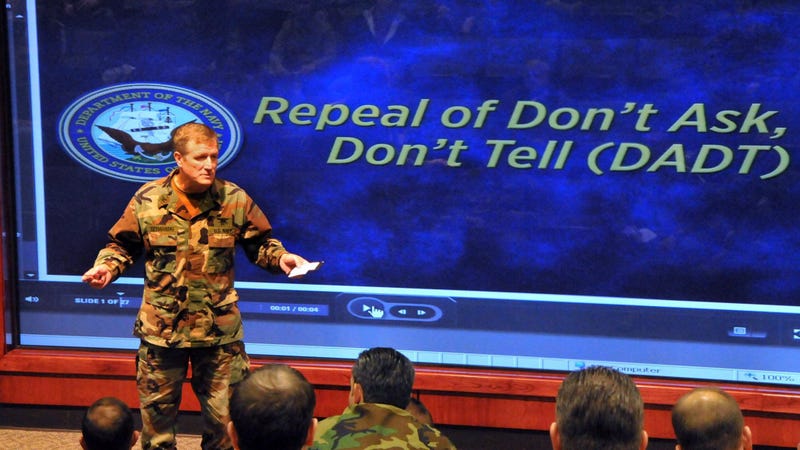
Monday marks the 10-year anniversary of the "don't ask, don't tell" repeal, which ended the 17-year military personnel policy enforced by the Defense Department and the military services.
"The 10th anniversary today of the repeal of 'don't ask, don't tell' reminds us that when we strive for greater inclusivity, we help strengthen our nation's defenses. By insisting on standards of merit and allowing to serve in uniform all those who are qualified, we avail ourselves of more talent, better leaders and innovative solutions to the security challenges we face around the world," Secretary of Defense Lloyd J. Austin III said in a statement.

"We are also reminded today that we have more work to do, particularly as it relates to righting old wrongs. No veteran should bear a less than honorable discharge based solely on sexual orientation or gender identity.
"As secretary of defense, I am committed to improving diversity, equity and inclusion across the force. It makes us more representative of the nation we defend. It makes us wiser. And, without question, it makes us stronger. On behalf of the entire department, I thank our LGBTQ+ service members — and your families — for the service you render each and every day."
Austin said those who believe they were unjustly discharged or retain an error in a service record, should contact the military department's Board for Correction of Military/Naval Records or Discharge Review Board.
Virginia S. Penrod, acting undersecretary of defense for personnel and readiness, spoke at a Center for a New American Security event today. She was the DOD's chairperson for the implementation of the repeal in 2011.
Implementation of the policy's repeal required coordination among Congress, DOD and service-level leadership, and it included the perspectives of service members, veterans and advocates, she said.
The biggest challenge of the implementation was the short time frame for getting it done and the need to get it done right, getting it done in a deliberative manner and getting it done in such a way that it was acceptable to everyone in the department and Congress, she said.
"A concern was the perception by organizations and some in Congress and some senior leaders in the department that repeal would impact military readiness, effectiveness, unit cohesion, recruiting and retention," Penrod noted.
Things worked out, though, she said. "I will tell you, this was probably one of the most successful projects that I've ever been part of."
She credited then-Defense Secretary Robert Gates and many others throughout the department for its success.


